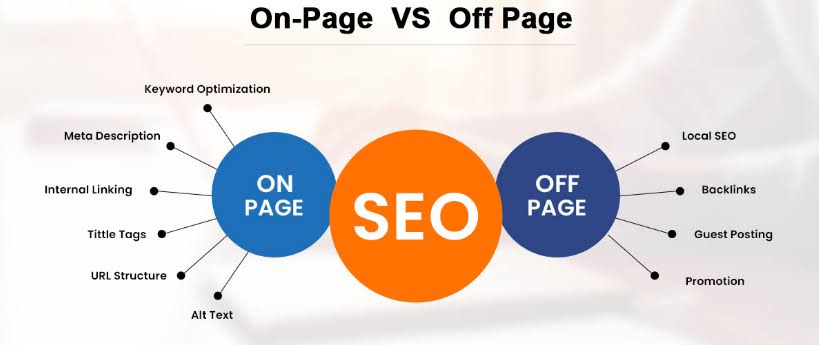Success in digital marketing is influenced by search engine optimization. It helps websites rank higher on other search engine results. This can be categorized into as on-page or off-page SEO. Both are important for search engine rankings. They work differently, so it’s crucial to be familiar with their differences. Read on to understand the difference between off page and on page SEO.
The On-Page SEO
This refers to the different methods used on the website page itself. This includes your overall website structure and layout. All these can help improve your website’s visibility and ranking. On-page SEO can help build your brand through the following:
- Content Quality. A website needs high-quality and relevant content. It should be well-organized, useful, and interesting to attract the readers. Keywords must be used efficiently to make the website more visible.
- Keyword Optimization. Use relevant keywords in your website content to gain the attention of your audience. Search engines will understand what your web pages are about and how to rank them.
- Use of Meta Tags. This will help your website get more clicks. Make sure these are short and interesting and must be relevant to the page. Follow the guidelines on the use of meta tags to make content visible.
- URL Structure. There is a higher chance that users click on URLs that include the company or brand name. Make sure that your URL is relevant and easy to remember.
- Use of Internal Links. Users will trust content that is linked to reputable websites. Users are more interested if they are led to the right content location.
- Positive User Experience. Make your web pages more interesting by providing a positive user experience. Your content should be relevant, and pages must be easy to navigate. You can also ensure that you have reliable customer support to answer queries and deal with concerns.
The Off-Page SEO
Off-page SEO involves strategies that are not done on your website. This, though can still help it rank higher on search engine results. This includes tactics to boost the site’s credibility and reputation using outside sources.
- Backlinks. High-quality backlinks from trusted sites show search engines that your website content is reliable.
- Social Media Engagement. This can boost site traffic and visibility. Social media algorithms may not directly affect SEO rankings, but their traffic and engagement can.
- Brand Mentions. This can help boost your site’s authority. Positive mentions from credible sites can improve your brand reputation.
- Influencer Collaboration. This can affect your site’s authority through promotions from influencers and industry experts.
- Guest Blogging. Writing articles for other authoritative websites can boost your brand through backlinks.
Both on-page and off-page SEO are key to an effective digital marketing plan. You can build influence and credibility outside your website through off-page SEO. The on-page SEO, on the other hand, optimizes your website. This will make it more visible to your target audience and the search engines. This will ensure a positive user experience. Make sure that you understand what each of these strategies can offer. Nonetheless, both can affect your website.



